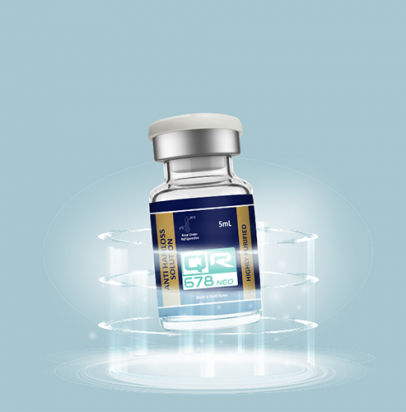
 Alopecia is an autoimmune disorder that usually results in unpredictable, patchy hair loss. Read to know everything about this hair condition.
Alopecia is an autoimmune disorder that usually results in unpredictable, patchy hair loss. Read to know everything about this hair condition.The first Saturday of August each year is observed as International Alopecia Day to raise awareness about Alopecia, which is an autoimmune disorder that usually results in unpredictable, patchy hair loss. A disease known as androgenetic alopecia is the most prevalent kind of hair loss. Both men and women are susceptible to this form of hair loss. “Male pattern balding” and “female pattern hair loss” are two more names for androgenetic alopecia. But who is more likely to suffer from alopecia men or women? We asked some experts in the industry to help you understand all about alopecia and who is more likely to develop the problem.
Dr Viral Desai says, “Alopecia or androgenetic alopecia is also known as patterned baldness, which may occur in men or women due to several factors such as ageing, genetics, lifestyle disorder, nutritional deficiencies and stress.” According to the expert, male-pattern baldness is a well-defined pattern, beginning from the hairline and progressing backwards in a central zone up to the crown region (top part of the head), often progressing to partial or complete baldness. He further states, “In female pattern hair loss, the hair thinning is present all over the head, and the hairline does not recede. Androgenetic alopecia in women rarely progresses to complete baldness.”
While alopecia can affect both men and women, studies suggest that men are more likely to suffer from the condition. Dr Desai gave us some statistics, explaining, “a recent study found that alopecia is known to occur in 50 per cent of men above the age of 50 and 30 per cent under the age of 50. In women, the onset of alopecia commonly occurs around menopause. From the above statistics, it is clear that alopecia affects men, both young and old, more than women.”
If you are wondering why alopecia affects more men, Mr Vikas Chawla, Founder and Director, Vedas Cure explains how it affects males and why is it more common in men. He says, “Alopecia is much more prevalent in men and occurs especially due to a male sex hormone known as dihydrotestosterone (DHT) leading to male pattern baldness the most common symptom. DHT is thought to cause hair follicles to miniaturize; it inhibits the nutrients to reach the follicles leading to hair loss. This may differ in the pattern as hair starts to recede at the temples and on the crown slowly thin and eventually disappear. Alopecia also occurs due to usage of salty water and begins in men from age 27-35.”
The situation today is such that men are presenting with hair loss much earlier than ever before, says Dr Rinky Kapoor, Director – The Esthetic Clinics India, and Inventor of the QR 678 therapy for hair loss treatment. “Earlier, the problem affected men in their thirties and forties, now we see teens and men in their early twenties suffering from hair fall. This leads to physical, social, emotional and psychological stress in the group.” Highlighting that women causes of hair fall are also increasing in women, Dr Kapoor says, “There are more and more women suffering from hormonal issues due to stress of modern life, poor lifestyle habits, polycystic ovarian disease and environmental factors. As high as 60% men over the age of 30 and 45% women over the age of 30 seem to be facing some sort of hair fall issue and are increasingly seeking treatment for retaining their hair, and thus, their confidence.”
Talking about the treatment for the same, Dr Kapoor says, “The revolutionary QR 678 therapy works really well for both male and female hair loss and also for COVID related hair fall and is a major part of our arsenal now for our young patients, as it is plant based and has zero side effects.”
Some of the common cures for this disorder can be keeping a good diet full of nutrients. Vedas Cure has prepared a herbal composition comprising of 30 herbs that contribute to hair growth, prevent hair loss, and facilitate nutrients to the hair. Along with the products a diet plan is also recommended. Hair is made of a tough protein called keratin. It needs proteins for good growth. If the Alopecia symptoms are genetic, then the precautions must be taken from the age of 15-16 years.
Some of the herbs which treat the dehydrated as well as damaged hair and help in gaining hair naturally are Bringraj, Punarnava, Amla, Brahmi etc.
Once alopecia is diagnosed by the doctor, it is vital to find the cause and treat it. Thankfully, there are some non-surgical and surgical treatments available when making lifestyle changes that don’t work. Here are the treatments as explained by Dr Viral Desai.
Note: If you are suffering from alopecia or massive hair fall, do consult a dermatologist to get a proper diagnosis.
Article Source – https://www.thehealthsite.com/beauty/hair-loss/international-alopecia-day-is-this-serious-hair-condition-reversible-heres-what-you-need-to-know-830316/
Country: India Bangladesh Kuwait Thailand UAE